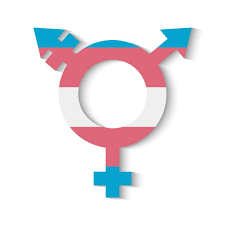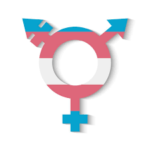When we think about hormones, testosterone usually steals the spotlight, especially in discussions about male health. However, estrogen, often dubbed the "female hormone," plays a crucial role in the male body too. Yes, you read that right! Estrogen is present in men and is essential for various bodily functions. This article aims to dive deep into the world of estrogen in males, exploring its importance, the myths surrounding it, and how to maintain a healthy balance.
What Is Estrogen and Why Is It in Males?
Estrogen is a group of hormones that primarily regulate female reproductive functions, but it’s also vital in men. Although testosterone is the dominant male hormone, estrogen is produced through the conversion of testosterone, primarily in the testes and adipose (fat) tissue. The most common form of estrogen in men is estradiol. This hormone plays a role in bone health, fat distribution, and even mood regulation.Does Testosterone Increase Body Temperature
So, why is estrogen important for men? It helps maintain healthy libido, contributes to sperm maturation, and is linked to cognitive functions, such as memory and concentration. In short, even though men have lower levels of estrogen than women, it’s still a key player in maintaining overall health and well-being.
The Role of Estrogen in Male Health Explained
Estrogen in males isn’t just a side note; it plays several critical roles in male biology. One of the primary functions is its influence on bone density. Research indicates that men with balanced estrogen levels have a lower risk of osteoporosis and fractures. Estrogen helps in maintaining bone strength by promoting the activity of osteoblasts, the cells responsible for bone formation.
Additionally, estrogen impacts cardiovascular health. Some studies suggest that optimal estrogen levels can contribute to a healthy lipid profile, reducing the risk of heart disease. Its role in regulating cholesterol levels is essential for maintaining overall heart health, making it a significant factor for men to consider as they age.
How Much Estrogen Do Men Really Need?
The average level of estrogen in men is significantly lower than in women, with normal estradiol levels ranging from about 10 to 40 picograms per milliliter (pg/mL). However, the precise amount of estrogen a man needs can vary based on factors like age, lifestyle, and overall health. Keeping estrogen within this range is vital for bodily functions, but too much or too little can lead to health issues.
It’s essential to remember that estrogen doesn’t work in isolation; it interacts closely with testosterone. A balanced ratio between these two hormones is crucial for optimal male health. So, while males may not require high levels of estrogen, a healthy amount is necessary for maintaining various bodily functions, and keeping testosterone in check.
Common Myths About Male Estrogen Levels Debunked
One common myth is that estrogen is solely a female hormone and has no place in male physiology. This misconception can lead to misunderstanding the importance of estrogen for male health. Men need estrogen for processes like sperm production and maintaining mood stability, among other functions. Disregarding estrogen’s role can result in serious health consequences.
Another myth is that higher estrogen levels in men instantly lead to feminine traits, such as breast development. While it’s true that excess estrogen can lead to gynecomastia (enlarged breast tissue), not all increases in estrogen have this effect. Male bodies are complex systems, and a range of factors, including genetics and overall hormone balance, contribute to how these changes manifest.
Estrogen Imbalance: Symptoms to Watch Out For
An imbalance in estrogen levels can trigger a host of symptoms in men. Low estrogen can lead to symptoms such as decreased libido, infertility, and mood swings. On the flip side, high estrogen levels can lead to gynecomastia, fatigue, and an increased risk of certain cancers, such as prostate cancer. Recognizing these symptoms early can be essential for addressing any underlying hormonal issues.
Men should also be aware of how these symptoms can overlap with other health conditions, making it crucial to consult a healthcare provider for accurate diagnosis and treatment. Hormonal imbalances can stem from various causes, including lifestyle factors, medical conditions, and even medications.
Lifestyle Factors That Affect Estrogen in Men
Several lifestyle factors can influence estrogen levels in men, often in unexpected ways. Obesity, for instance, can lead to higher estrogen levels since fat tissue converts testosterone into estrogen. This can create a vicious cycle, where higher estrogen levels lead to more fat accumulation, further raising estrogen levels.
Diet and exercise play significant roles too. Consuming a diet high in processed foods and added sugars can disrupt hormonal balance. On the other hand, regular exercise helps maintain a healthy weight and can promote balanced hormone levels. Simple lifestyle changes, such as incorporating more fruits, vegetables, and lean proteins into the diet, can make a big difference.
The Lowdown on Estrogen Therapy for Males
Estrogen therapy is often discussed in the context of female needs, but it can also be relevant for men, particularly those with hormone imbalances or specific medical conditions. This therapy may involve administering estrogen to treat conditions like low libido, osteoporosis, or certain types of hypogonadism. It’s essential for such therapy to be monitored closely by a healthcare provider, as improper use can lead to health complications.
However, estrogen therapy isn’t a one-size-fits-all solution. The benefits and risks must be weighed carefully, and discussions should include alternative treatments and lifestyle changes that can help manage symptoms. It’s always best to approach hormone therapy with caution and focus on a balanced and holistic approach to health.
Balancing Hormones: Tips for Healthy Estrogen Levels
Maintaining a healthy balance of estrogen involves a combination of diet, exercise, and overall wellness strategies. First, focus on maintaining a healthy weight. This can help regulate estrogen levels since excess fat tissue can produce more estrogen. Incorporating strength training can also help, as muscle mass burns more calories and aids in maintaining hormonal balance.
Moreover, prioritize a balanced diet rich in whole foods. Nutrient-dense foods like leafy greens, nuts, seeds, and lean proteins can support hormonal health. Additionally, managing stress through mindfulness practices, such as yoga or meditation, can also help regulate hormone levels, including estrogen. Small, consistent changes in lifestyle can lead to significant improvements in hormonal balance.
Understanding estrogen’s role in male health can be empowering for men as they navigate their well-being. It’s clear that estrogen is not just a "female hormone" but a crucial component of male biology. By debunking myths, recognizing symptoms of imbalance, and embracing lifestyle changes, men can take proactive steps to ensure their hormonal health remains in check. After all, a balanced body leads to a balanced life!


